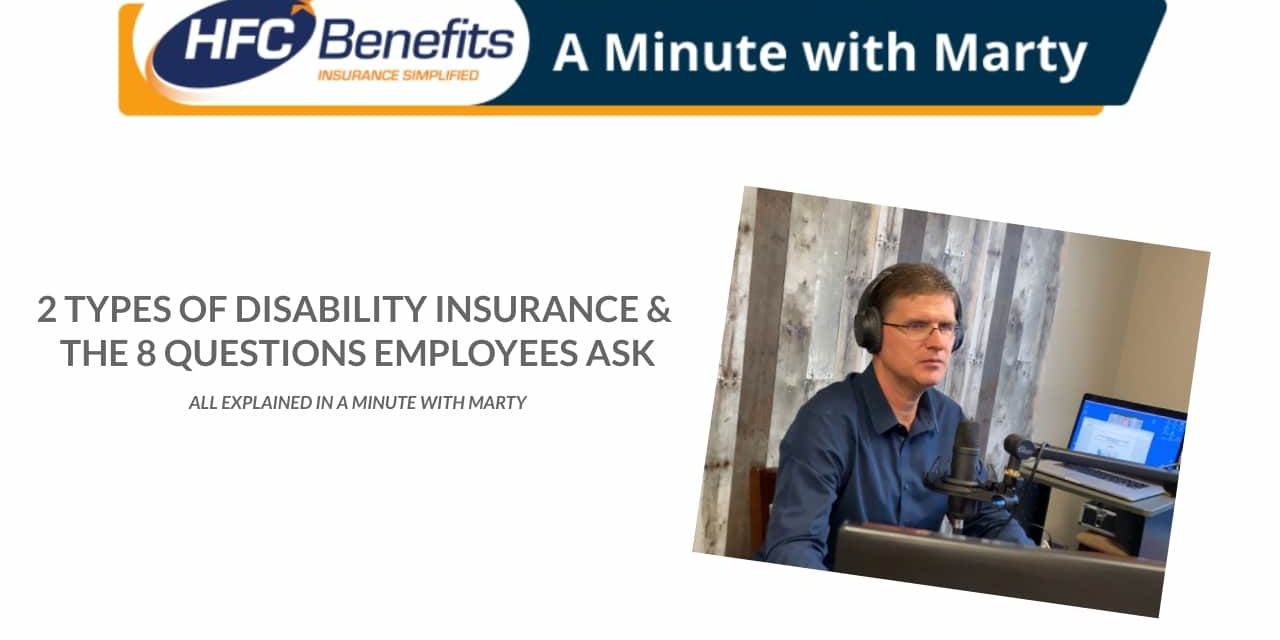Click Here to Watch the Short Video Instead
How Does Disability Insurance Work? Questions Your Employees Ask
Disability insurance provides a source of income to people who are unable to work due to an accident or illness. The average disability claim lasts almost 13 months and mortgage foreclosures due to disability occur 16 times as often as they do for death. A disability can come out of nowhere. Many times we think it will happen to the other person. The good thing is, disability coverage can be offered through an employer at a very reasonable price. Because of that, I highly encourage employers both small and large to offer this inexpensive benefit. Below are some typical questions we get asked from employees during a benefits enrollment meeting.
DOES SHORT-TERM DISABILTY COVER MATERNITY?
Yes. Maternity is covered as an illness. Natural Birth or C-Section are both covered.
CAN I GET BOTH MY SICK PAY AND MY SHORT -TERM DISABILTY BENEFITS?
No. STD is designed to help employees should there not be any sick time available or should they run out of sick time.
Employees have the ability during an STD Claim to utilize their sick pay first, and then continue benefits through disability coverage, but they cannot collect both at the same time.
CAN I USE SICK PAY WHILE I’M IN THE WAITING PERIOD FOR SHORT-TERM DISABILITY BENEFITS?
Yes, Sick Leave Pay or PTO can be utilized during the benefit waiting period. Typically, STD coverage is for Off the Job injuries only. However, for specific organizations where workers comp does not apply, STD coverage can be made 24 hour coverage.
DOES MY SHORT-TERM DISABILITY ALSO COVER ON THE JOB INJURIES?
Typically, STD coverage is for Off the Job injuries only. However, for specific organizations where workers comp does not apply, STD coverage can be made 24 hour coverage.
IS PARTIAL DISABILITY (REDUCTION IN HOURS AN EMPLOYEE CAN WORK) COVERED UNDER STD?
Yes, any reduction in hours due to an illness or injury is considered a disability and partial benefits can be paid.
WHEN SHOULD I FILE A DISABILITY CLAIM?
Right away! Too often people wait until their condition is very serious to file a disability claim. Submit the claim the first day you are unable to work to your full capacity in your occupation.
IS LONG TERM DISABILITY INSURANCE JUST FOR MY MEDICAL BILLS? DO I HAVE TO BE IN A LONG TERM CARE FACILITY?
No! Just like STD, think of LTD as Paycheck insurance. LTD will pay a portion of your paycheck to you if you are unable to work in your occupation due to sickness or injury. The benefits check is paid directly to you.
IS PARTIALLY DISABILITY COVERED?
Yes, any reduction in hours due to an illness or injury is considered a disability and partial benefits can be paid.
DO I HAVE TO DO A MEDICAL EXAMINATION IN ORDER TO GET LTD COVERAGE?
Typically, no. If you sign up for voluntary coverage through your employer or it is employer paid, you do NOT have to answer medical questions or complete a medical exam. If you sign up for the coverage late (outside your enrollment period) you can be subject to medical Evidence of insurability (EOI).
CAN MY DISABILITY INSURANCE HELP ME GET BACK TO WORK?
Yes. In many ways: Rehabilitation Benefits: A disability carrier can help pay for expenses associated with a rehabilitation program or education expenses needed to get back to work.
Worksite modification: Carriers can pay for necessary equipment for claimants to get back to work or even modifications at the actual worksite.
IS MY DISABILITY BENEFIT TAXABLE?
It depends : If your employer pays for the disability coverage, then the benefit the claimant receives is taxable. That is unless the employer uses a “Gross-Up Model” in which you would have to confirm with your employer. If the coverage is voluntary (100% Employee Paid) then the benefit is tax free.
DOES THE DISABILITY OFFSET FOR SOCIAL SECURITY DISABILITY?
Yes. If a claimant is eligible to receive Social Security Disability Insurance, then that amount is going to offset the disability benefit form the insurance carrier. They aren’t going to allow you to “double dip”.








